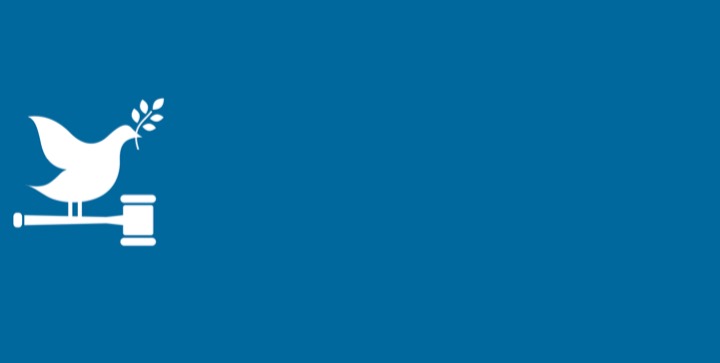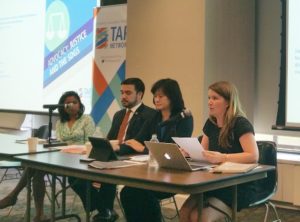News & Blogs
“Advocacy: Justice and the SDGs”
For 50 years access to justice has been guaranteed as a basic human right under international law. Yet for hundreds of millions of people around the world, this right is not their reality. Many countries have either failed to enact sufficient laws at the national level or failed to effectively implement them. As is often the case, the world’s poorest and most vulnerable are the hardest hit.
But there is good news. In January 2016, the United Nations (UN) formally adopted a list of 17 sustainable development goals (SDGs) that are designed to end extreme poverty, fight injustice and tackle climate change. Goal 16 specifically recognizes the importance of legal empowerment and equal access to justice for all, and how it can help achieve sustainable development. This historic achievement has the potential to foster great change.
As the 193 UN Member States who adopted the SDGs start working towards making the goals a reality, they are going to need help with implementing and monitoring their SDG commitments. This provides the legal empowerment and access to justice community with an unprecedented opportunity; they can use their government’s commitment to the SDGs as a way to seek funding and increased support for their work.
Namati and other members of the Transparency and Accountability (TAP) Network have been capitalizing upon this opportunity. Over the last few years Namati, the American Bar Association Rule of Law Initiative (ABA ROLI), the International Legal Foundation, and Open Society Justice Initiative have been working with reformers in countries around the world to push forward vital justice reforms using the momentum created by the SDGs. In Kenya, for example, the country’s first Legal Aid Law was passed, and in Indonesia the government adopted a comprehensive national justice plan. We want to share what we learned and support others to use the SDGs to advance much-needed justice reforms.
Our new publication, Advocacy: Justice and the SDGs is a step-by-step guide to help activists, policy practitioners, and members of civil society to use the SDGs to advocate for increased justice support and financing from their governments. It was developed with partners from around the world and through a series of consultations with members from the Global Legal Empowerment Network and wider civil society.
In September, we brought together over one hundred reformers at the UN General Assembly in New York. Participants had a robust discussion about how the SDGs can be used to further access to justice and shared successes, concerns, and challenges that they have faced in implementing this agenda. They also critiqued the guide, suggesting ways the content could be improved to serve the needs of NGOs working at the grassroots level. All of the comments were used to further revise and refine the toolkit.
In partnership with the governments of Argentina, Indonesia, and South Africa, the guide was officially launched on November 16th at the Second International Conference on Access to Legal Aid in Criminal Justice Systems in Buenos Aires, Argentina. The conference gave members of civil society and governments an opportunity to share experiences and discuss ways to increase access to justice through the extension of legal aid systems. They welcomed the Advocacy: Justice and the SDGs guide with enthusiasm.
Reflecting on the event, Stacey Cram, Namati’s Policy Director said: “It’s been a wonderful few days with delegates from around the world discussing how the SDGs can help advance civil and criminal justice issues. People are clearly excited about the opportunity the SDGs present. However, it is also clear that there is a shared uncertainty about how exactly to utilize them. This is what makes this guide so important – it will be a practical tool to help turn this excitement into concrete action.”
The toolkit introduces the SDGs and explains the important part legal empowerment plays in their success, using cases studies to illustrate this relationship. It also contains a number of tips and diagnostic tools, including an access to justice assessment, GAP analysis, and solution tree, to help readers obtain data around country-specific justice issues. Ultimately, this guide will assist its users in developing advocacy strategies for reforms that will address country-specific justice issues, increase overall access to justice, and help hold their government accountable to their SDG and other international justice commitments.
To download the guide or learn more about its content and usage, please click here.


